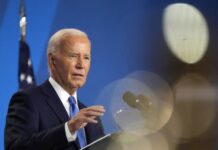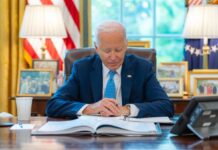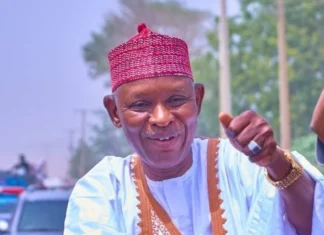
Russian President Vladimir Putin has declared martial law in Donetsk, Luhansk, Kherson and Zaporizhia, four regions of Ukraine that Russia proclaimed as annexed last month.
Putin did not immediately spell out the steps that would be taken under martial law, but said the measures were intended to increase the stability of the economy, industry and production in support of Russia’s special military operation in Ukraine.
“We are working on solving very complex, large-scale tasks to ensure a reliable future for Russia, the future of our people,” he said in televised remarks to members of his Security Council on Wednesday.
Mykhailo Podolyak, a Ukrainian presidential adviser, rejected the move and said Kyiv would continue its counteroffensives against Russian forces in Ukraine.
“‘Martial law’ implementation on the occupied territories by Russia should be considered only as a pseudo-legalisation of (the) looting of Ukrainians’ property,” he wrote on Twitter.
“This does not change anything for Ukraine: we continue the liberation and deoccupation of our territories.”
Reporting from Moscow, Al Jazeera’s Mohammed Vall said that the declaration would have far-reaching consequences for those living in the Russian-occupied regions.
“It will mean more restrictions on the movement of people. It will mean the military and local administrations will have the right to do what they want in terms of how people move around, or restrict them from gathering,” he said.
“Political parties gathering and activities will be banned, and civilian or semi-civilian factories will be asked to reorient their production lines to help the military.
“The mobilisation in those regions will now be a total mobilisation instead of partial mobilisation, which has taken place in the Russian Federation,” he added.










